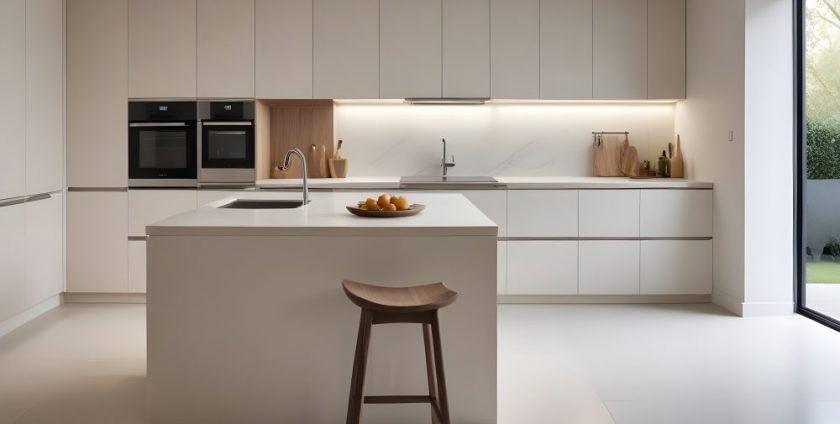
- By: Ryo
- Tags: countertop, kitchen, Kitchen Countertop
- Category: Home Improvement, Kitchen Countertops
- 0 comment
Choosing a countertop for home kitchens is a meticulous task as it involves a lot of details and aspects. There are many different elements home owners should take into consideration when choosing countertops for their home kitchens. Here are 4 important guides to create a gorgeous kitchen.
Choosing A Countertop #1: Choice Of Material
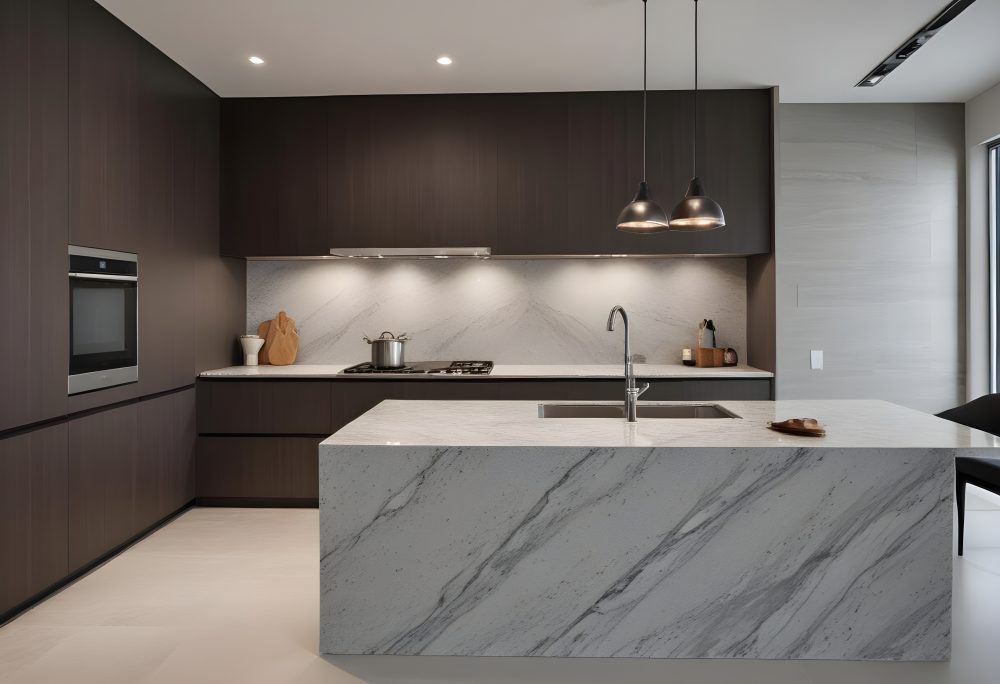
Knowing the characteristics of different materials will help when it comes to selecting a kitchen countertop. One of the most common materials used is granite which is known to be hard, heat-resistant while also being available in many colours and patterns. However, it does require some level of maintenance in terms of periodic sealing. Apart from that, quartz is also a common material used for kitchen countertops. This material is known for being non-porous, its high resistance to stains and scratches alongside also requiring very low and basic maintenance while coming in a wide range of colours that home owners can choose from based on the aesthetics of the space.
Marble, with its luxurious appeal helps in adding a touch of class to the kitchen space but prone to staining and scratching easily — requiring regular maintenance efforts. Laminate countertops are considered as a more budget friendly option. These countertops come in a variety of designs for home owners to choose from.
Wood based countertops provides warmth to its surroundings with its natural look and is perfect for chopping; however, it does require regular sealing in order to maintain a pristine condition overtime. Concrete countertops are highly customisable and resilient. One downside of this product is that it has the tendency to crack with time and require sealing to prevent stains. Countertops that are made of stainless steel are very common in commercial or professional kitchens since they are highly resistant, have the ability to bear heat while also giving out a modern look. On the flip side, on they may show fingerprints smudges quite easily.
Each material has its own requirements regarding maintenance and visuals. Granite and quartz are great for high-traffic kitchens due to the hardness of these materials, while marble and wood could more suit low-traffic use. Another consideration would be the installation process. There are some materials such granite and concrete that require professional installation. Ultimately, picking the correct countertop material will come down to its durability, maintenance, cost, aesthetics and functionality that suits the needs and lifestyle of home owners.
Choosing A Countertop #2: Product Functionality
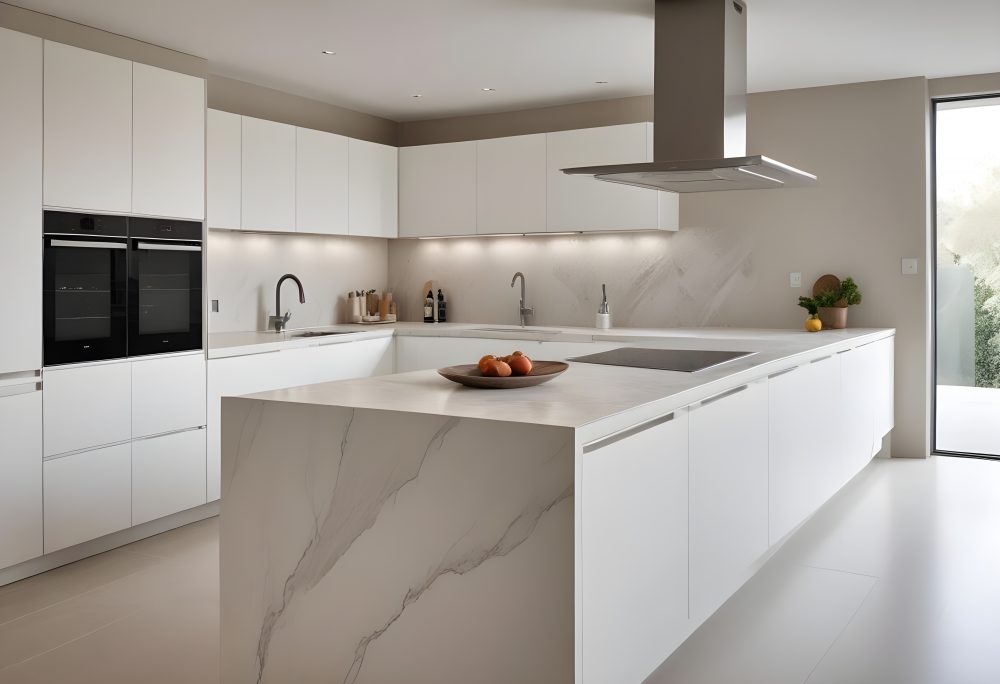
While selecting a countertop for the kitchen space, home owners should consider one that is functional to enhance the use and increase the enjoyment factor when in the culinary space. An extremely functional countertop should address cooking habits, lifestyle and maintenance preference.
Many people prefer granites and quartz countertops as these materials can withstand heat and displays high durability — allowing for more flexibility and peace of mind when using as it does not incur damages easily. One of the added benefits of quartz is that it is non-porous; hence, it is resistant to stains and bacteria — perfect for busy kitchens. The same can be said for marble. With its cool surface, it becomes perfect for preparing dough when one is baking. Marble; however, requires a little more maintenance effort when to prevent it from obtaining any scratches and stains.
Families that have to stick to a certain budget may opt for laminate countertops which are more cost-friendly and is available in a multitude of design options, although less durable compared to other harder materials and it may easily obtain scratches. Another aspect of functionality is when additional elements such as built-in sinks or custom cutting boards are incorporated within the countertop — designed to save counter space and assist with kitchen chores.
Home owners should keep in mind that daily routines and the level of upkeep of these elements will help them pick and decide on a countertop that satisfies their aesthetic needs and significantly boosts the kitchen’s functionality. These considerations will help create a functional, efficient and aesthetic kitchen space.
Choosing A Countertop #3: Durability And Maintenance Requirements
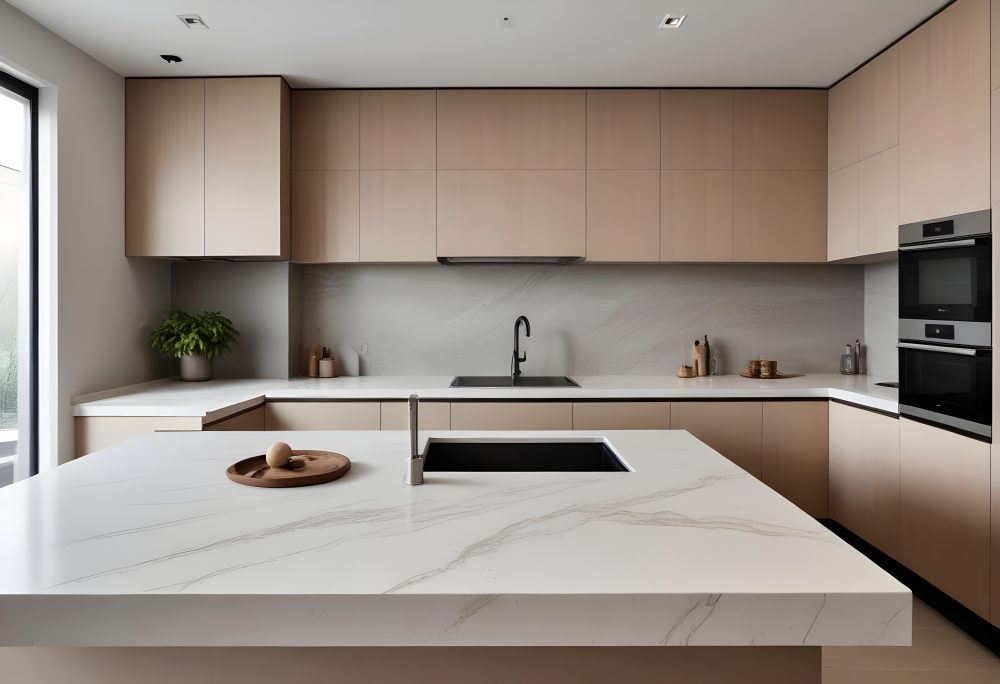
Home owners should consider durability and maintenance as a very important aspect when selecting the best kitchen countertop for their home kitchen. Durability in a countertop material accounts for the daily wear and tear or resistance to heat, moisture and sharp objects. For instance, granite possesses excellent durability, making it scratch and heat-resistant although sealing is recommended from time to time to prevent staining. Quartz is a non-porous engineered stone that is massively resistant to stains as well as scratches and requires little maintenance.
Other materials such as marble give out a more decorative vibe. It is important to note that marble is more prone to scratches and stains and they require careful maintenance and regular sealing in order to retain their beautiful look. While laminate counters are more affordable, they are also less durable and can scratch easily.
Wood based countertops provide a warm and organic look but this material does require periodic maintenance and oiling procedures to avoid them from drying out and eventually cracking. Concrete counters can be custom made and are known for their durable and strong exterior but without upkeep processes such as sealing, it can develop cracks and is prone to staining. Stainless steel is strong, resistant to heat and gives a modern feel; however, fingerprints are quite noticeable on this surface.
Cleaning needs also vary from one material to another. While some countertop materials require just simple cleaning with mild soap and water, others need to be sealed or oiled regularly. Knowing how each material stands the wear and tear processes will become a deciding factor when home owners choose a countertop that meets their needs.
Choosing A Countertop #4: Environmental Impact
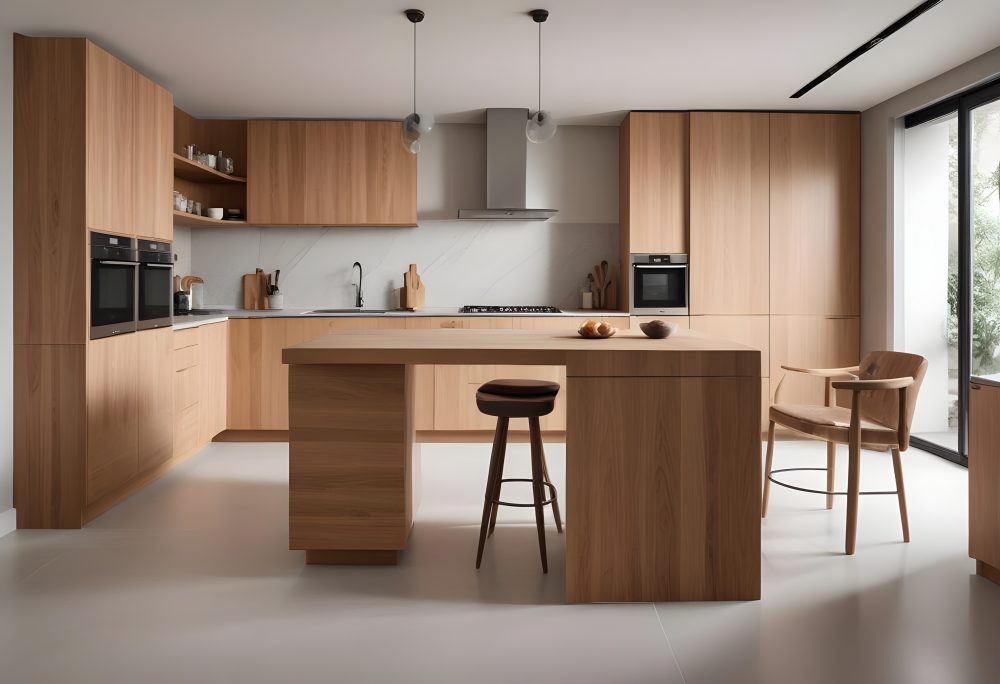
When selecting kitchen countertops, the impact on the environment is a major factor when intending to create an eco-friendly home. Environmentally, there are massive differences between various materials used to be made into kitchen countertops.
Natural stone countertops made from granite and marble have some properties in terms of durability and life, but extracting them from their sites requires significant energy and could potentially become a factor that causes environmental disruptions in the form of loss of habitat and interference with the ecosystem — making them less eco-friendly.
Apart from that, quartz is a kind of stone that is made from a blend of crushed quartz mixed with resin; thus, making it more eco-friendly. This material is non-porous; hence, it requires little maintenance and they do not require too many harsh cleaning chemicals — making cleaning easier alongside reducing environmental impact over time. Glass, concrete and composite materials from old and recycled materials are known for their eco-friendly properties. Reusing these elements can help in minimising waste and saving natural resources.
Knowing the lifecycle of your selected countertop material right from the extraction or production process up till its installation alongside its maintenance requirements can help minimise environmental impacts towards the earth. Choosing materials that are certified alongside promoting sustainable practices is a way to align the home owners’ sustainable practices that extends to the home space.
SIGN UP FOR KITCHEN DESIGN IDEAS:
Join over 5,000 homeowners subscribed to our newsletter!